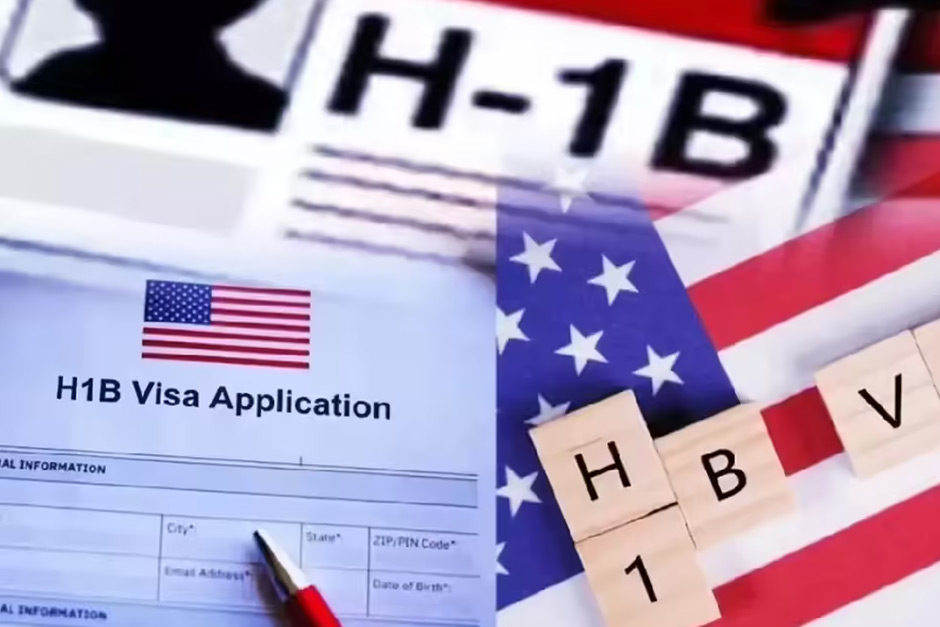A significant allegation from a US economist has cast a renewed spotlight on the integrity of the H-1B visa program, a critical pathway for skilled Indian professionals seeking opportunities in the United States. The claim, alleging that a staggering 220,000 H-1B visas were issued to individuals from a single district in India, has sparked concerns about potential “industrial fraud” and raised questions about the system’s vulnerabilities. This assertion, if substantiated, could have far-reaching implications for both the future of the H-1B program and the Indian IT industry.
The Allegation: A Concentrated Anomaly
The core of the controversy stems from a meticulous analysis by a US economist, widely known for his research on immigration and labor economics. He posited that an astonishing number of H-1B visas, specifically 220,000, were granted to applicants listing addresses within one particular district in India. This concentration is viewed as highly unusual and statistically improbable given the competitive nature and the annual cap of 85,000 regular H-1B visas (including 20,000 for Master’s degree holders). Such a disproportionate allocation, the economist suggests, points towards systemic irregularities rather than organic demand.
The H-1B visa program is designed to allow US employers to temporarily employ foreign workers in specialty occupations that require theoretical or technical expertise. It is a lottery-based system, especially for initial applications, making such a massive single-district concentration highly suspect. The economist did not mince words, labeling the phenomenon as “industrial fraud,” implying a deliberate and organized effort to exploit loopholes within the visa application process. This could involve everything from mass filings by a few consultancies using fabricated credentials to the use of shell companies or multiple applications for the same individual, issues that have plagued the system intermittently in the past.
Implications for H-1B Integrity and Indian IT
The allegation, if proven true, could significantly erode trust in the H-1B visa program’s fairness and integrity. It would likely trigger intensified scrutiny from US immigration authorities, including the United States Citizenship and Immigration Services (USCIS) and the Department of Homeland Security. Such scrutiny could manifest as more stringent application reviews, increased site visits to employers, and potentially even retroactive investigations into past visa approvals. For genuine applicants and ethical companies, this translates to a more arduous and uncertain process.
From an Indian perspective, the claims pose a complex challenge. India’s vibrant IT sector has historically been the primary beneficiary of H-1B visas, with thousands of skilled professionals moving to the US annually to support critical projects. Allegations of “industrial fraud” could tarnish the reputation of the entire Indian IT industry, creating a perception that Indian companies or consultancies are inherently prone to exploiting immigration laws. This might lead to an unfavorable bias against Indian applicants and firms, regardless of their compliance.
Furthermore, the US administration, already under pressure to prioritize domestic workers and streamline immigration processes, might use such findings as justification for further reforms or restrictions to the H-1B program. “When you see numbers like 220,000 visas tied to a single district, it’s not merely an anomaly; it points to a deliberate circumvention of immigration laws on an industrial scale,” stated the economist, emphasizing the need for robust investigation and accountability.
Navigating the Path Forward
The gravity of the economist’s allegations necessitates a thorough and transparent investigation by relevant US and Indian authorities. Should fraud be uncovered, swift and decisive action would be crucial to restore confidence in the H-1B system and uphold the rule of law. This might involve prosecuting individuals or entities found culpable, implementing tighter controls on visa applications, and enhancing data analytics to detect future patterns of abuse.
For Indian IT companies, particularly those with significant US operations, this serves as a potent reminder of the importance of strict compliance and ethical practices. Proactive measures to audit their own visa filing processes and ensure complete transparency could help mitigate potential reputational damage. Ultimately, addressing these serious allegations head-on is vital to ensure that the H-1B program continues to serve its intended purpose: facilitating the legitimate flow of global talent, rather than becoming a conduit for fraud.




